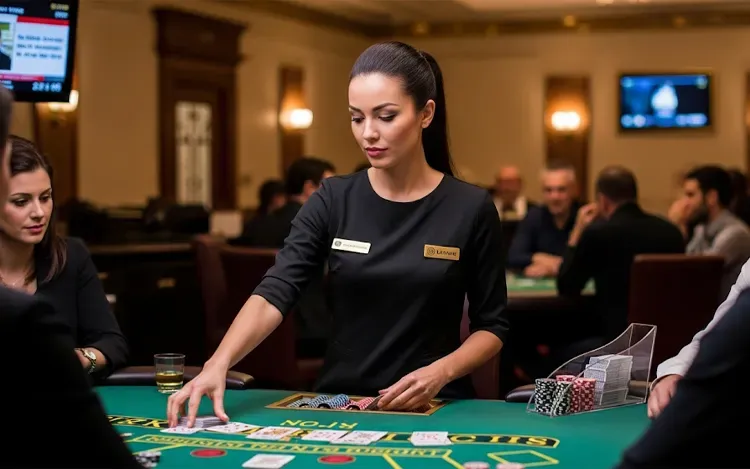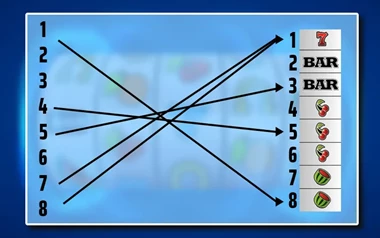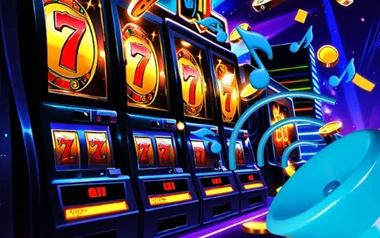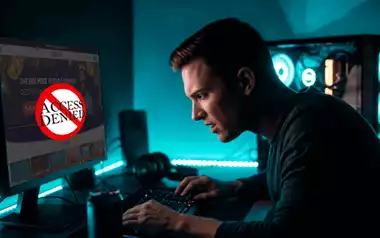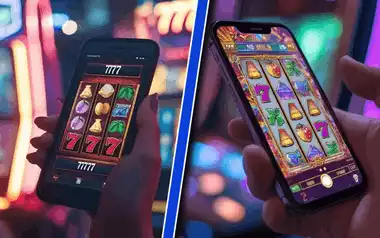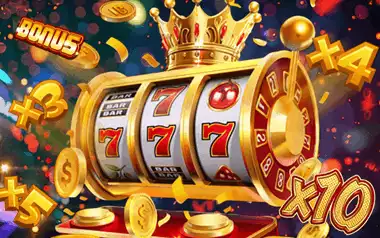Casino dealers are highly trained professionals who play a crucial role in the smooth running of any gaming operation. This applies to the floor of a luxury resort and in front of a live-streaming camera at an online casino studio. Dealers must master games, follow strict procedures, and deliver exceptional service.
This article offers a detailed look at how casinos train their dealers, from recruitment through to live game deployment. The process is intensive, structured, and designed to uphold both fairness and entertainment.
What Casinos Look for in a Dealer
Casino training begins with selecting the right candidates. While previous experience can be helpful, it is not always necessary. Most casinos are more interested in potential, attitude, and aptitude.
Essential qualities for casino dealers:
- Fast and accurate mental arithmetic
- Good manual dexterity
- Clear communication skills
- Calm under pressure
- Professional appearance and punctuality
Applicants typically go through an interview and a short skills assessment. This might include basic maths problems, chip handling, or simulated card dealing. For online casino roles, a confident on-camera presence and multilingual ability are highly valued. Being an online casino dealer also means you have to be physically in a studio, or some cases, on the casino floor.
Our recommended online casino sites.
Formal Dealer Training: Structure and Curriculum
Once hired, candidates enter a formal training programme. Depending on the casino operator, this can take place in a dedicated dealer school or in-house training facility.
Dealer training covers:
- Game rules and mechanics (e.g. blackjack, roulette, baccarat, poker)
- Chip handling and bet placement
- Payout calculations and error prevention
- Table etiquette and professional conduct
- Compliance with gaming regulations and security protocols
In online casino environments, additional modules include operating digital interfaces, managing live chat features, and engaging effectively with a remote audience. The average training programme lasts between four and twelve weeks. In that time, dealers will not be able to start work.
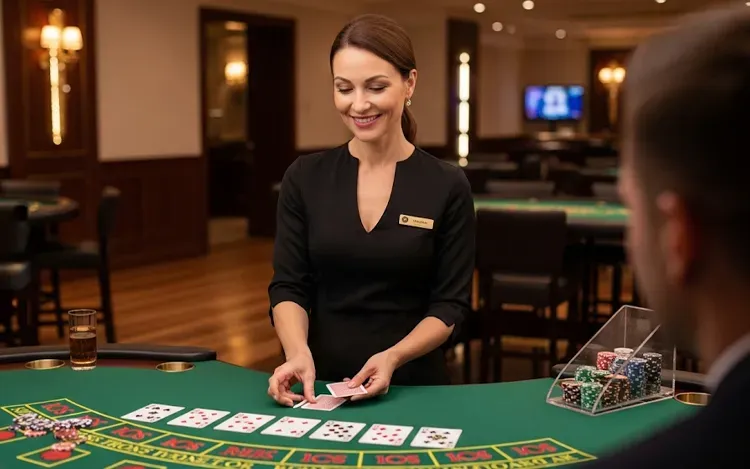
Formal Dealer Training Structure and Curriculum
Learning the Games: One at a Time
New dealers begin by specialising in a single core game. This ensures they gain deep knowledge and confidence before expanding their skills. Each game has nuances, so understanding them can help keep players happy and flowing. At Gambling Zone, we know the most popular games are blackjack and roulette, so what would a dealer need to know about these?
Blackjack
- Handling cards efficiently and accurately
- Managing splits, insurance, and double-downs
- Calculating payouts quickly
Roulette
- Spinning the wheel and launching the ball smoothly
- Managing complex betting systems
- Calling results and issuing payouts correctly
Only after demonstrating consistent accuracy and professionalism are dealers trained in additional games.
Developing Soft Skills: The Human Element
Technical skill is essential, but casinos also value customer interaction. Dealers represent the brand, whether face-to-face or through a live-streamed feed.
Key areas of focus:
- Delivering friendly, clear communication
- Managing disputes and difficult players calmly
- Maintaining a neutral and fair presence at all times
- Creating an enjoyable and respectful environment
- Ensuring table limits are well known
Online casino dealers must also maintain high energy and camera awareness, often during long shifts with minimal downtime.
Live Practice: From Simulation to Real Play
After completing classroom training, dealers move into live practice. This transitional phase is supervised closely. In land-based casinos, this happens during quieter shifts with experienced staff nearby. While in online studios, dealers may start with non-public test games before progressing to real player interactions.This period allows new dealers to build confidence, apply procedures under pressure, and receive live feedback. It also gives casino managers the chance to assess performance before assigning regular shifts.
Ongoing Training and Career Development
Training does not end once a dealer is live on the table. Continuous learning is essential for maintaining high standards and adapting to industry changes.Dealers who excel often progress into supervisory roles such as pit boss, game presenter trainer, or studio shift leader. The skills developed through dealer training can also be applied to careers in casino operations, hospitality, and customer service.

Ongoing Training and Career Development
Conclusion
The casino dealer training process is comprehensive, professional, and designed for long-term success. From learning game mechanics to mastering customer interaction, dealers are prepared to deliver reliable, high-quality service in fast-paced environments.
This structured approach applies to both land-based and online casinos, where precision, fairness, and player experience are top priorities. Dealers play a vital role in maintaining the integrity of the casino and ensuring that players enjoy every game. So next time you sit at a table, you can be sure that the dealer knows the rules and will enforce them.
